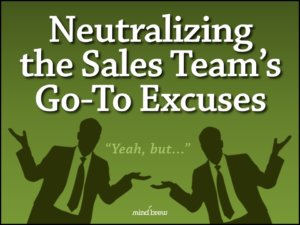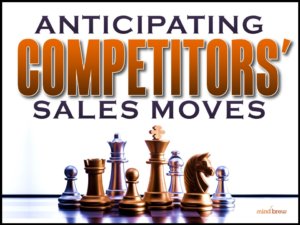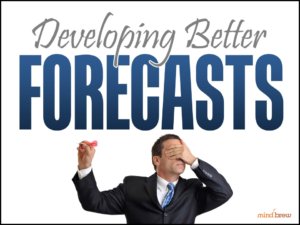There’s a story floating around the Internet that we like a lot as an example of a sales ops concept. We have no idea if this story is true, but regardless, it illustrates an important point. The story goes like this:
Back in the early days of Disneyland, the clock on the Main Street Railroad Station served as official park time. The gates would open only when this particular clock showed the correct opening time for the day.
However, the clock started to lose a few minutes, as clocks do. People were complaining that the park was opening late, so management sent maintenance to check on it.
One worker climbed up a ladder to the clock tower, while another went to a telephone within earshot, ready to call out the correct time. The guy on the telephone called the switchboard to ask what time it was. The switchboard operator then looked out the window at the station clock and told the maintenance worker what time it said — leading to an infinite loop of misinformation.
The Infinite Loop In Sales
In a similar way, sales operations sometimes rely on incomplete or outdated points of reference, setting up a kind of echo chamber that reinforces misguided assumptions. Here are a few common examples:
- Historical Sales Data:Relying heavily on historical sales performance metrics without considering the current market or customer behavior can create a feedback loop that leads to stagnant or ineffective sales strategies. It’s important to balance historical data with real-time insights. For more on aligning your data with current realities, check out The Fundamentals of Sales Intelligence.
- Over-reliance on CRM Data: While CRMs are essential tools, they can become echo chambers if data isn’t regularly validated or enriched. Inaccurate inputs lead to inaccurate forecasts and misguided sales strategies. Sales Ops teams need to ensure their data is fresh and relevant to avoid driving poor decisions. Explore more on optimizing CRM data in Getting More Out Of Your CRM.
- Sales Team Feedback Loops: Although input from the sales team is invaluable, relying too much on their feedback (and excuses) can create a loop where decisions are based solely on anecdotal experiences. Without balancing their insights with hard data, you might miss larger market trends or customer needs. Learn how to navigate this challenge in Neutralizing the Sales Team’s Go-To Excuses.
- Competitor Comparisons: Matching your sales processes or strategies to what competitors are doing without considering your unique positioning or customer base can be risky. Just because a competitor is pursuing a certain approach doesn’t mean it’s the best path for your team. Learn how to use competitor information wisely in Anticipating Competitors’ Sales Moves.
- Executive Assumptions: Executive mandates often drive sales strategies, but without sufficient data or input from key teams like Sales ops, these decisions can reinforce ineffective practices. Just because leadership has a vision doesn’t mean it’s always grounded in reality. Discover ways to tactfully influence executive decisions in Demonstrating The Value of Sales Ops.
- Sales Forecasting: Relying on past sales performance to predict future outcomes can create a forecasting echo chamber. You’ll have a much more accurate picture of what’s ahead by incorporating real-time market insights, customer behaviors, and predictive analytics. For more tips on improving your forecasting approach, check out Developing Better Forecasts.
That Disneyland story seems quaint to us, in part, because clock and telephone technology has come so far. It’s unthinkable now that someone wouldn’t know exactly the right time.
In the same way, Sales Ops technology is light years ahead of where it once was. CRMs, data analytics tools, and sales intelligence platforms have revolutionized the way we operate. However, it’s crucial to ensure that you’re relying on the latest data and insights rather than outdated systems or echo chambers that perpetuate misinformation and ineffective sales strategies. Keeping your tools and methods up-to-date ensures you avoid falling into a similar infinite loop in your Sales Ops function.

















